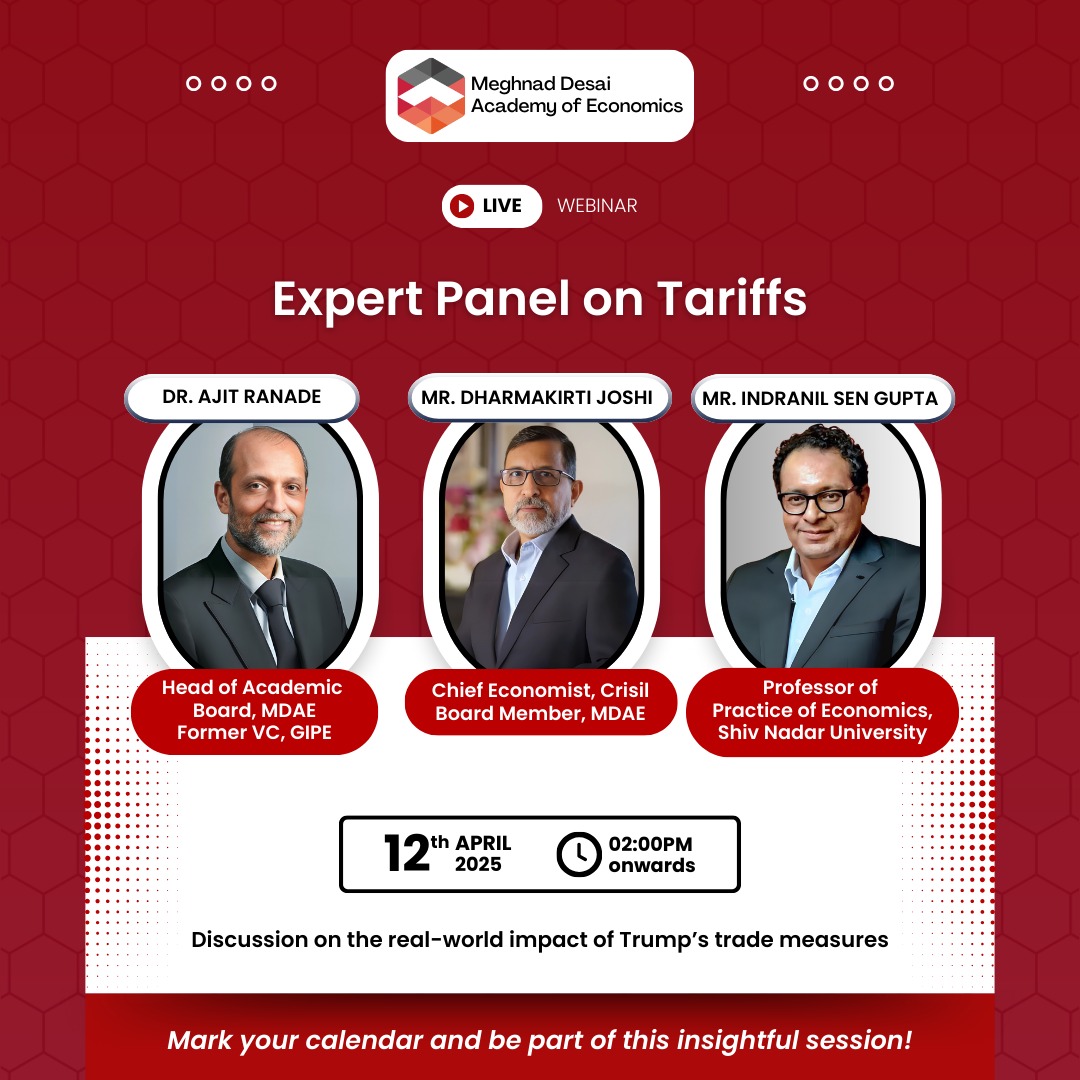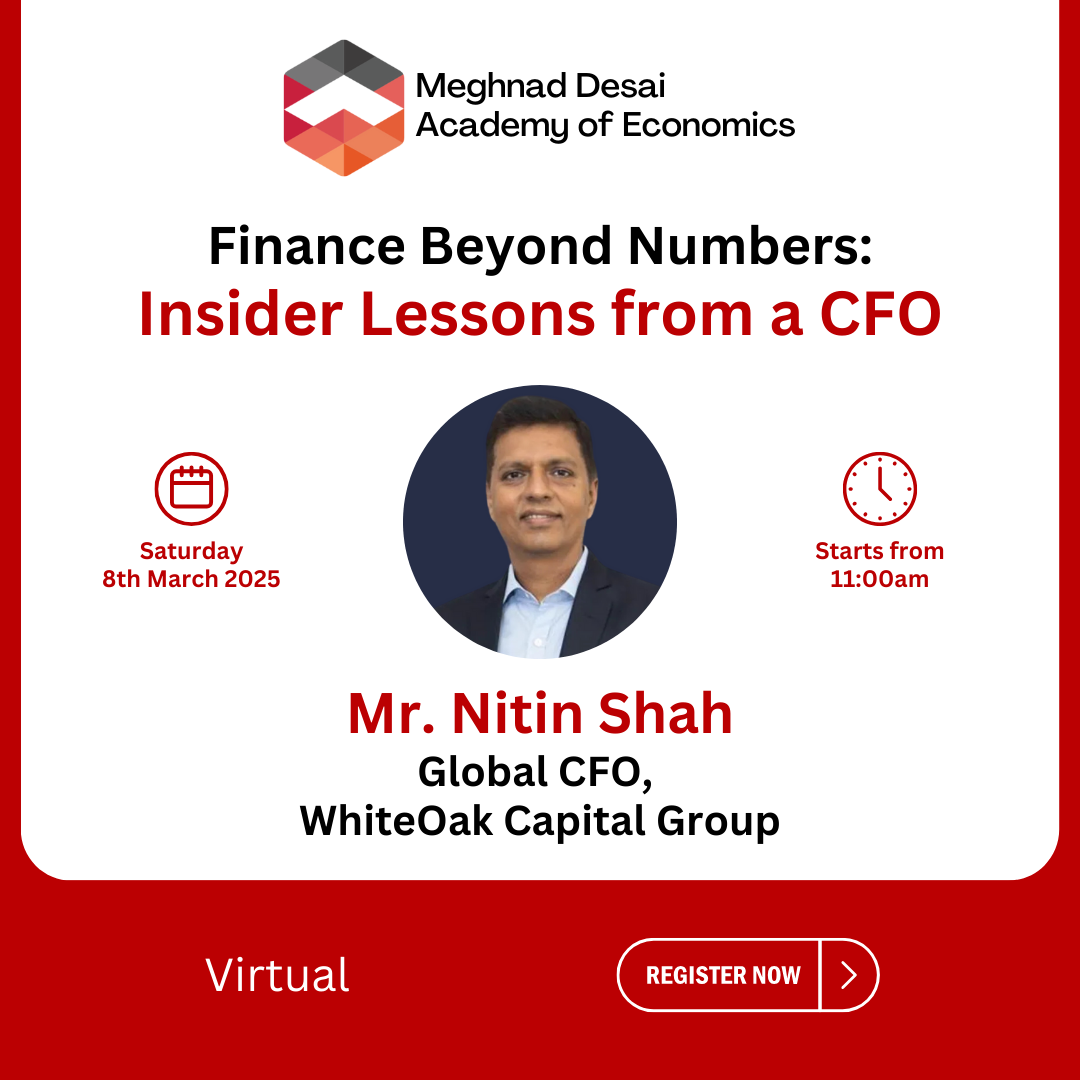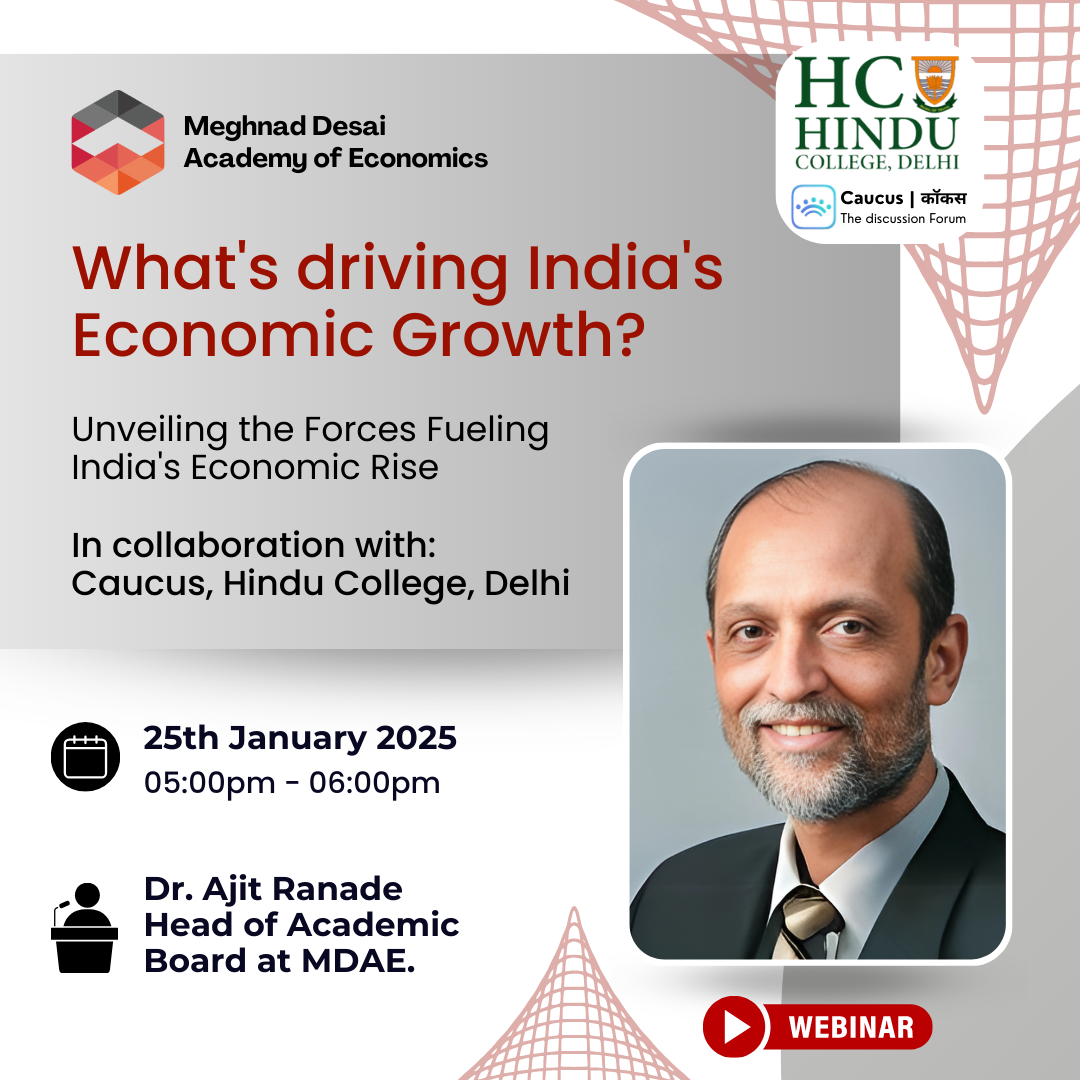On the 5th of September, 2024, Lord Meghnad Desai visited MDAE, a visit made even more special by the fact that it coincided with Teachers' Day. He spent several hours engaging with the enthusiastic MDAE batch of 2024-25, who eagerly asked him questions on a wide range of topics, from Bollywood and the rise of AI to his experience as a naturalised British citizen. The interaction began with Lord Desai sharing his approach to understanding the world through the lens of politics and economics. He highlighted how being curious and viewing events through an economic perspective can deepen one's grasp of economic theories and their practical application. This, he noted, is also crucial when selecting a thesis topic, as choosing something truly interesting and meaningful fuels genuine curiosity and enriches the research process.
The students posed intriguing questions to Lord Meghnad Desai, one of which was about which contemporary Indian actor he considers to be on par with Dilip Kumar. In response, Lord Desai, who has authored a biography of the legendary actor titled “Nehru's Hero: Dilip Kumar in the Life of India”, reflected on his deep admiration for Kumar. He shared that, after watching some of Kumar's films more than 15 times, he uncovered striking parallels between India's socio-political landscape and its portrayal on screen. He discussed a range of issues, from censorship and the representation of Indian masculinity to cultural identity and secularism, illustrating how these films captured a rapidly changing India during that era.
He also addressed questions on income inequality in developing countries and the impact of technological advancements, such as the rise of AI, on economies. Additionally, he shared his personal experiences of studying in Pennsylvania during the 1960s and later moving to London, offering insights into how these transitions shaped his perspectives.
The session proved to be highly enriching for the students, offering them a rare opportunity to engage directly with Lord Meghnad Desai’s vast knowledge and experience. His insightful discussions on topics ranging from income inequality and technological advancements to the socio-political reflections in Indian cinema provided the students with a deeper understanding of how economics, politics, and culture intersect in shaping societies. His personal anecdotes, including his academic journey and experiences in both the U.S. and the U.K., added a valuable personal dimension, inspiring the students to think critically and explore diverse perspectives in their own academic pursuits.







